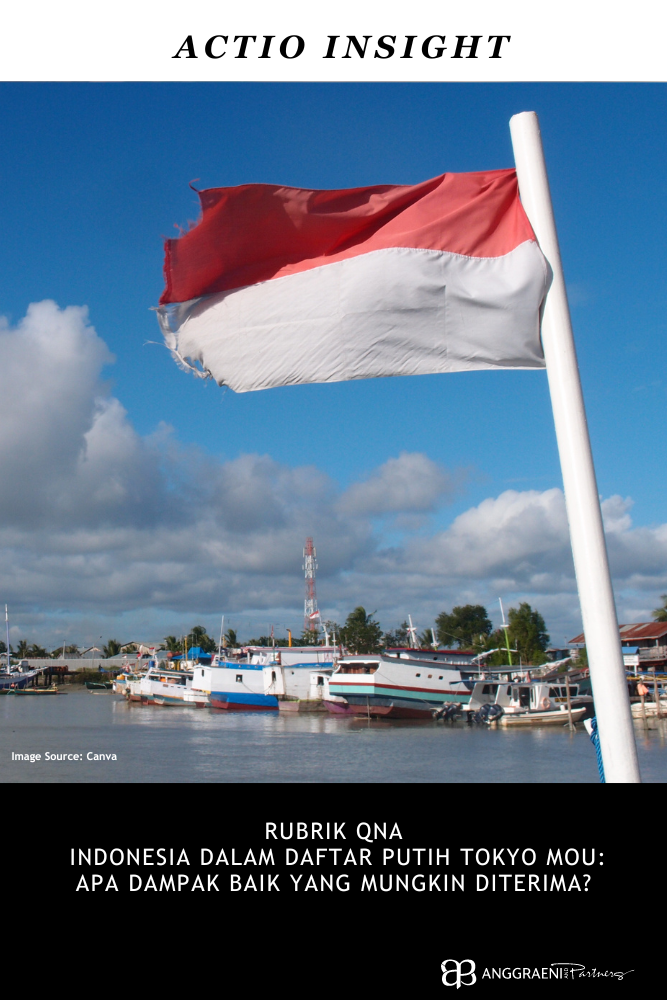- Home
- Capabilities
- ACTIO® Hub
- About Us
- Connect with Us
- AP Library
A General Election is the heartbeat of democracy. Many view this year as the political year that would determine the rhythm of the democracy heartbeat of Indonesia. This year, Simultaneous Local Elections will be held. However, the simultaneous Local Elections is not only a battle of politics but also a warm up of the plan to modernize the general elections system. One of the ideas to modernize Indonesia’s general elections system is to hold an electronic based general election, or commonly known as e-voting. Every General Election in Indonesia has tended to generate several highlights. The first spotlight this year concerns the extravagant funds needed to hold the general elections. For example, this year’s Simultaneous Local Elections are predicted to cost more than 15 trillion rupiah.1
The second spotlight concerns the transparency of the election results, and the long period between votes’ calculation and recapitulation. Using the previous elections as a learning experience, it is clear that many loopholes still exist. Each stage that happened in the polling stations, village or dub-district committee, district level, regency/town’s recapitulation, province until the final tally at national level is done by KPU Pusat. The number of stages involved in the votes recapitulation and verification make it extremely plausible for distortions to happen in each stages. This results in a large number of elections result disputes.The discourse of modernizing general elections have existed since the 2014 General
The election, with the possibility of holding electronic based general elections. However, that discourse was put on hold because of regulatory obstacles. In the end, the only step that KPU had taken to modernize general elections was by implementing the real count system or e-counting. But, this system was only used as a basis of comparison or as a second opinion, with manual vote recapitulations as KPU’s main source in deciding the results of the general elections.
In reality, Indonesia already has the legal basis for e-voting. In fact, Article 5 of Law Number 19 of 2016 juncto Law Number 11 of 2008 regarding Electronic Information and Transaction ( UU ITE) can be used as the basis to hold e-voting. However, UU ITE does not specify the scheme of technology development or particularise the electronic technology to be used as a basis for such a scheme. In terms of digital democracy, Indonesia can claim some progress. The momentum to modernize Indonesia’s general elections’ system started in 2010. At that time, the implementation of e-voting was held for the first time in the election of Village Head in the Regency of Jembaran, Bali. Although the implementation was successful, it did not mean that the e-voting was free from legal issues. The preceding year, The Regent of Jembaran and several head villages proposed a constitutionality review to the Constitutional Court of the Republic of Indonesia (MK) in order for the e-voting to be regarded as constitutional. The MK responded by agreeing on the legality of the e-voting process, based on its decision numbered 147/ PUU-VII-2009.The MK decided that e-voting were constitutional as long as it abided by the principles of general elections, which is LUBER ( direct, free and confidential) and JURDIL ( honest and fair ). Furthermore, the MK also stated that in order to hold e-voting, the General Elections committee in that area must be prepared. This historical MK decision has become the main reference to hold e-voting. Another legal instrument that can be used as the basis to hold e-voting is Regulations Number 10 Year 2016 concerning Government Regulation in Lieu of Law governing Election of Governor, Regent and Mayor into Law (“UU No. 10 Year 2016”). Article 85 of this Law clearly provides that voting can be done through electronic voting machine.
Although legal instruments concernig e-voting already exist, itis not easy to implement e-voting in general elections in the near future. Indonesia is still constrained in terms of basic infrastructure (such as electricity and internet connection) and there is also the problem of distributing the technical equipment for e-voting. 1.
Another challenge that will be encountered is public’s skepticism about the citizenship database and cyber security. In order to implement e-voting, the basic requirements include a qualified citizenship databank and capable voters recorde . Digital security enterprise McAfee previously conducted a study that showed that online general elections was not as popular because of low trust issues from the public regarding security.2 However, there are now advanced technological developments, as seen by enhanced security in online financial transactions., It is envisaged that the security issues of e-voting are likely to be overcome.. Therefore, KPU needs to consider the option of opening up to the possibilities of partnering with technology firms, including digital security enterprises. This has been done previuosly by Estonia and Switzerland in their general elections. Besides technical preparation, KPU should also establish solid operative regulations to answer those challenges.
In the end, e-voting is not just an event of picking a favourite winner such as in a talent show. More than that, consensus and collective work is necessary to prepare adequate facilities and infrastructures. E-voting is not only about technology but also our preparedness to improve our legal framework, move the political wills of the ruler, and trust from public to use technology. Thus, e-voting will be the instrument to keep the rhythm of our democracy heartbeat live and well.
-MSB-


